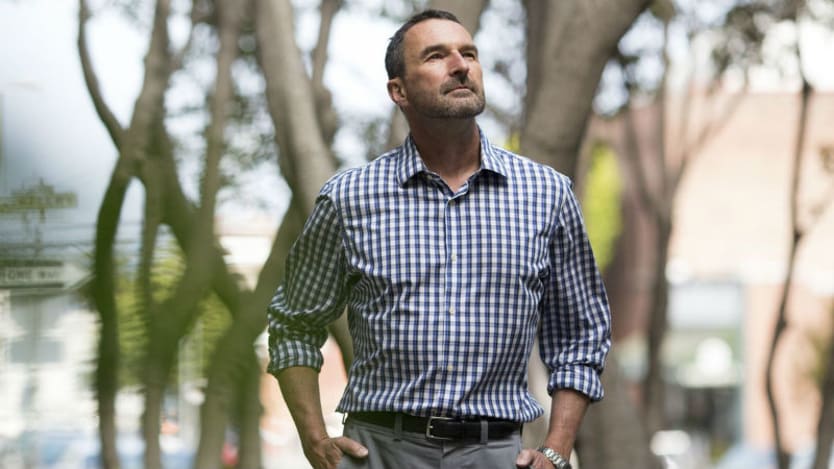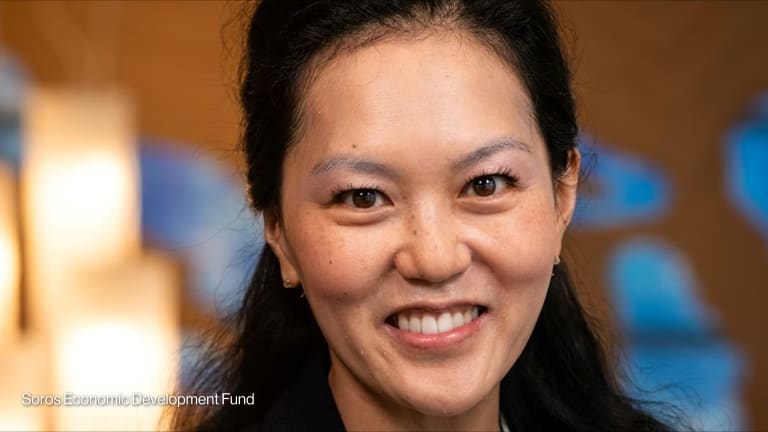
SAN FRANCISCO — When the World Bank supported Metrobús, the bus rapid transit system in Mexico City, it risked turning a system that was self-sufficient into one that was reliant on development finance.
“With the Paris Agreement, every country made plans to decarbonize, but ... every one of those words was artfully designed to avoid any commitments.”
— Hal Harvey, CEO of Energy Innovation“The trick is to figure out that you don't need concessionary finance to do the right thing. You need ordinary finance with smart policy to do the right thing. And that's where the multilaterals and bilaterals have been falling short,” said Hal Harvey, CEO of Energy Innovation, a San Francisco-based energy and environmental policy firm.
Harvey, who has devoted his career to accelerating the transition to a clean energy economy, is the author of “Designing Climate Solutions,” which was published last week. As leaders gather in Poland for the 24th session of the Conference of the Parties, he spoke with Devex about the importance of smart energy policy design, not only for policymakers but also for the global development community.
This conversation has been edited for length and clarity.
Can you highlight the major points you hope policymakers in developing countries might take from your book?
The first one is to really pay attention to urban form — including public transit, walking, biking. The human future is an urban future, and this is emphatically true in developing countries, where there is a massive migration from farm to city. The urban form agenda is a way of saving money and dramatically helping people from all walks of life.
When you create a new big city, you create patterns that persist for centuries — the size of your blocks, the width of your streets, whether you are mixed-use or single use. These are questions that profoundly affect people's well-being, their health, their sense of community, and so forth. And they also drive equity a great deal.
There are a handful of specific, very clear choices that mayors and national planners have to make in order for cities to function well. For example, by making public transport the highest, best option instead of the lowest, worst option. And in particular, I'm thinking of bus rapid transit, which we see all over the world from Dar es Salaam to Guangzhou. If they're done well, you get subway speed and subway efficiency at 5 percent of the cost, but done well comes with a big asterisk.
Point number two is energy efficiency standards for equipment, appliances, and vehicles, which may seem very mundane and very straightforward, but it has fairly dramatic impact. Whenever you have an inefficient anything, say a refrigerator or an air conditioner, you have just taxed the owner permanently, and you've taxed the environment at the same time, and you've often taxed the balance of payments, which is a real problem for many developing countries.
This idea that you have to go through six stages of crappy technology before you're allowed to have good technology is a bad idea.
And third, is to avoid massive fossil fuel investments, and that could be anything from pipelines to power plants to refineries because the world is fast leaving those behind and they become stranded assets. It’s heartbreaking to watch African countries borrowing money from China to build coal-fired power plants because they're just going to be an anchor on the economy and it’s no longer the cheapest way to go.
The premise of your book is “a small set of energy policies, designed and implemented well, can put us on the path to a low carbon future.” It seems the global development community can either help or hinder this process. So what is your key message for our community at Devex?
The first thing is to not consign development or energy and climate issues to cute little auxiliaries. What I mean by that is the existing global cash flow for energy is 5 trillion dollars a year. If that money lands on good choices to promote a low carbon equitable future, we're fine. We make it. And if that money lands on the opposite — look at Nigeria — it’s horrible.
One absolutely needs policy to make that happen. It’s a thousand times more powerful than writing checks for projects. By writing checks for projects, you're bounding the solution and the boundary is very small. There’s not enough money. There just isn't — not even close, not by a factor of a thousand, at least.
The two words that matter when thinking about climate change opportunities are speed and scale, and funding little startups here and there doesn't capture either of those qualities.
Instead, help countries with policies — help them build the institutions to enforce the policies and modify them over time, help them with design. Spend the money on the DNA of the city rather than putting up 12 solar panels or 1,000 solar panels. And by institutions, I don't just mean you know the ministries. I mean the electric utility, or the grid operator, or the bus operators.
More from COP24:
►The key role of indigenous people in global climate change efforts
► Engineers sound alarm about climate change and infrastructure
Speaking of speed and scale, what about the COP process has not led to the kind of change that climate change demands from policymakers?
With the Paris Agreement, every country made plans to decarbonize, but with intended nationally determined contributions, or INDCs, every one of those words was artfully designed to avoid any commitments.
We have all these plans, and we are a third of the way we need to go, and that is a big deal, because if you get the first third the second third comes along a lot faster. Here's what here's what the rich countries should have done but absolutely failed to do: provide assistance for each country to meet its INDC. And again I’m looking at the DNA, the need to connect policymakers with experts who can make sure they are successful because success breeds success.
And then at COP, they’re having this silly conversation about mobilizing $100 billion in climate finance. They don't donate $100 billion. They fake it. They relabel stuff they gave away two years ago, they write contributions and investments, and $100 billion is irrelevant compared to the five thousand billion dollars spent every year.
There are really two elements to this book. One is: How do you choose what to work on? “All of the above” is the worst answer I've ever heard.
There are a small number of things that make a huge difference, and a huge number of things that make a small difference. So there is really a 90/10 rule with policy. So goal number one is focus on stuff that counts.
The second thing we found out is for every good policy idea, there are 100 ways to misdesign it. So for example, every single fuel efficiency standard around the world has at least one design flaw, so we wanted to say what’s important and then how do you design it in a very practical sense?
Finally, don’t think of solving climate change as a concession that rich people force on poor people. That dynamic — that it's a burden to do the right thing, it’s a burden to build great cities, it’s a burden to stop wasting energy, that mindset has to disappear.








